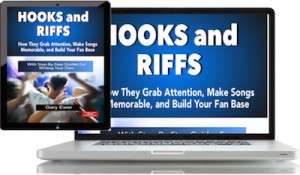If you still write songs in the traditional way — sitting on the edge of your bed with a guitar and working it all out — you probably perform your songs with your band, or perhaps as a solo performer, with guitar or keyboard as your main instrument.
Lately I’ve been giving Peter Gabriel’s album “New Blood”, released in 2011, another listen. It features songs from earlier in his career, but all with orchestral accompaniment. It got me thinking… I wonder how many of you ever consider orchestral accompaniment, or even small ensembles of orchestral instruments, instead of typical rock or folk band instruments.
 You may have good instincts, but great songwriting requires more than that. You need the fundamentals. Polish your songwriting technique with “The Essential Secrets of Songwriting” bundle of ebooks. Start honing your craft today!
You may have good instincts, but great songwriting requires more than that. You need the fundamentals. Polish your songwriting technique with “The Essential Secrets of Songwriting” bundle of ebooks. Start honing your craft today!
Your first reaction, of course, is: “How do I do that? I’m not Peter Gabriel… I can’t just hire a symphony orchestra!”
In these days of professional sound samples and computers, a “real” orchestra isn’t necessary. You might be surprised by how close to an actual orchestra well-written arrangements performed using computer and samples can get.
The real question is: why? What can you gain by having your songs accompanied by orchestra?
There are several ways in which orchestral accompaniments can move your music in a positive direction:
- You find hidden colours and sounds within the melodies and chords you’ve chosen. Converting, let’s say, a strumming guitar into a woodwind accompaniment with lush strings in the background can allow you to hear those strums as if they’ve gained a new and interesting life.
- You reveal your songs to new audiences. There are many people that love listening to orchestral music, and having an orchestra as your main accompanying “instrument” presents your songs with a sound that is more palatable to them.
- It can give your music an air of sophistication. The orchestra has a way of making songs sound innovative, perhaps even a bit elite. It can get a listener’s attention in ways that a standard band version might not.
It’s been done quite often in the pop music world. Eagle’s “Wasted Time (Reprise)” is a wonderful example. And you can hear the powerful effect of orchestral instrumentation in Alicia Keys’ “Karma”.
So if you’re interested in seeing what orchestral accompaniment can do for your songs, you’ve got two main ways to get started:
- Learn all you can about using computers and samples, or find a good friend who already knows how to do this. There are lots of sites with free samples online, including the Philharmonia Orchestra site.
- Visit your local music school or university, and find willing (good) classical students to play on your recordings. You might be surprised how supportive and interested musicians are in your projects. Many students will do this for an honorarium.
Don’t feel that including classical instrumentation means that you’re redefining who you are as a songwriter or performing musician. Just doing one song with unique instrumentation might be all that’s required to get audiences thinking you’ve got something deeper going on.
And orchestral accompaniment is a great way to add a new sound to your music, if everything you normally do is accompanied by that same strumming guitar or piano chords.

Written by Gary Ewer. Follow Gary on Twitter.
 The hook is one of the most important features of good songwriting, and crucial to the success of most great songs. “Hooks and Riffs: How They Grab Attention, Make Songs Memorable, and Build Your Fan Base” shows you how hooks work, and how to make the most of this vital element in your songs.
The hook is one of the most important features of good songwriting, and crucial to the success of most great songs. “Hooks and Riffs: How They Grab Attention, Make Songs Memorable, and Build Your Fan Base” shows you how hooks work, and how to make the most of this vital element in your songs.











Wonderful concepts, Gary, as always. I’ve been working on my String writing chops for a fair while now. Other orchestral instruments too, but mostly Strings for now. Would love to help any songwriters looking to explore arrangement ideas.Blessings.